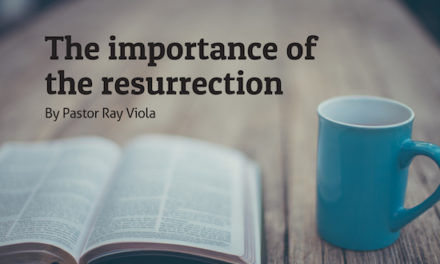In our fast-paced culture most connections are superficial and relationships are shallow. It is possible to “know” (be acquainted with) many people, but really know, or be known by, no one.
The word know is a verb, and its meanings include: to recognize, be acquainted with, have sexual relationship with, understand, experience. Thus, even by definition, the activity of knowing is not limited to mental involvement, but can encompass other levels of interfacing, including physical, emotional, and spiritual. Of course the all-knowing Creator is aware of and knowledgeable about every one of His created beings. “Are not two sparrows sold for a copper coin? And not one of them falls to the ground apart from your Father’s will. But the very hairs of your head are all numbered.” (Matthew 10:29,30) And God’s knowledge of men goes beyond casual observation or statistical analysis (Psalm 139:1-6,13-18). Why does God care so much about us? For one thing, humanity is God’s crowning creation because Adam and Eve were created in the very image of God (Genesis 1:27), and God’s desire and plan is for the redeemed to become like Jesus. “For whom He foreknew, He also predestined to be conformed to the image of His Son” (Romans 8:29). Did you catch that? “…whom He foreknew”. Those people whom God (in His infinite foresight, complete comprehension and total understanding) knew before the creation of the universe (Ephesians 1:4-5) would, in the exercise of their free will, receive His grace, recognize their helpless and hopeless state of sinfulness (Isaiah 64:6), and respond to His offer of salvation and eternal life, they are the ones destined for divine transformation and glory (Romans 8:30).
God is infinitely holy, perfect, and good, and He cannot have a loving relationship or eternal fellowship with anyone who is otherwise. “For what fellowship has righteousness with lawlessness? And what communion has light with darkness? And what accord has Christ with Belial?” (2 Corinthians 6:14,15) But since man’s innate, inherited nature is defiled by sin (Jeremiah 17:9,10), we must become new creatures in Christ and covered with His righteousness in order for God to reestablish a loving relationship with us (2 Corinthians 5:17-19,21). The alternative to this loving relationship with God through Christ’s righteousness is judgment and eternal separation from God. Hence the critical importance of God knowing us through Christ! “Not everyone who says to me, ‘Lord, Lord,’ will enter the kingdom of heaven, but he who does the will of My Father in heaven. Many will say to Me in that day, ‘Lord, Lord, have we not prophesied in Your name, cast out demons in Your name, and done many wonders in Your name?’ And then I will declare to them, ‘I never knew you; depart from Me, you workers of lawlessness!’” (Matthew 7:21-23)
Does that offend your ego, that salvation is not about you and your ‘good deeds’? Then you need to remember (or settle in your heart) who is GOD, who is sovereign and on the throne. “Be still, and know (Hebrew: observe, recognize, acknowledge, comprehend, consider, understand) that I am God.” (Psalm 46:10) This is the proper arrangement, the correct order. God is the Source of knowledge and salvation, man is the object and recipient of them; God is Primary (in the universe and beyond!), man is secondary (Genesis 1:26a,27). In His infinite wisdom and knowledge it is impossible for God to be unrighteous (in error) in showing mercy and choosing the recipients of His salvation (Romans 9:14-24).
God’s desire to have a prolonged and close personal relationship with each beneficiary of His salvation necessitates that each one also know Him, as the Apostle Paul expressed: “I count all things loss for the excellence of the knowledge of Christ Jesus my Lord…that I may know Him and the power of His resurrection, and the fellowship of His sufferings…” (Philippians 3:8,10) In fact, Jesus even defined eternal life as knowing God (John 17:3). Again, Christ’s sacrifice on Calvary revealed God’s heart and will to redeem us and to make it possible for us to have a loving relationship with God as our Father, rather than a legal one with God as our Judge. Thus, God’s desire to know us also involves our knowing Him in an on-going relationship, through frequent communication and interaction, resulting in a spiritual intimacy far surpassing mere mental comprehension. This means we need to be open and honest with God (and ourselves). Remember, one of the first effects of sin was the reaction to cover up and hide from God (Genesis 3:6-11), so whenever we acknowledge our sins before God, or ask Him to reveal our hearts to us, we are, in effect, uncovering ourselves to Him. We’re asking Him to know us. “Search me, O God, and know my heart; try me, and know my thoughts; and see if there is any wicked way in me, and lead me in the way everlasting.” (Psalm 139:23-24)






